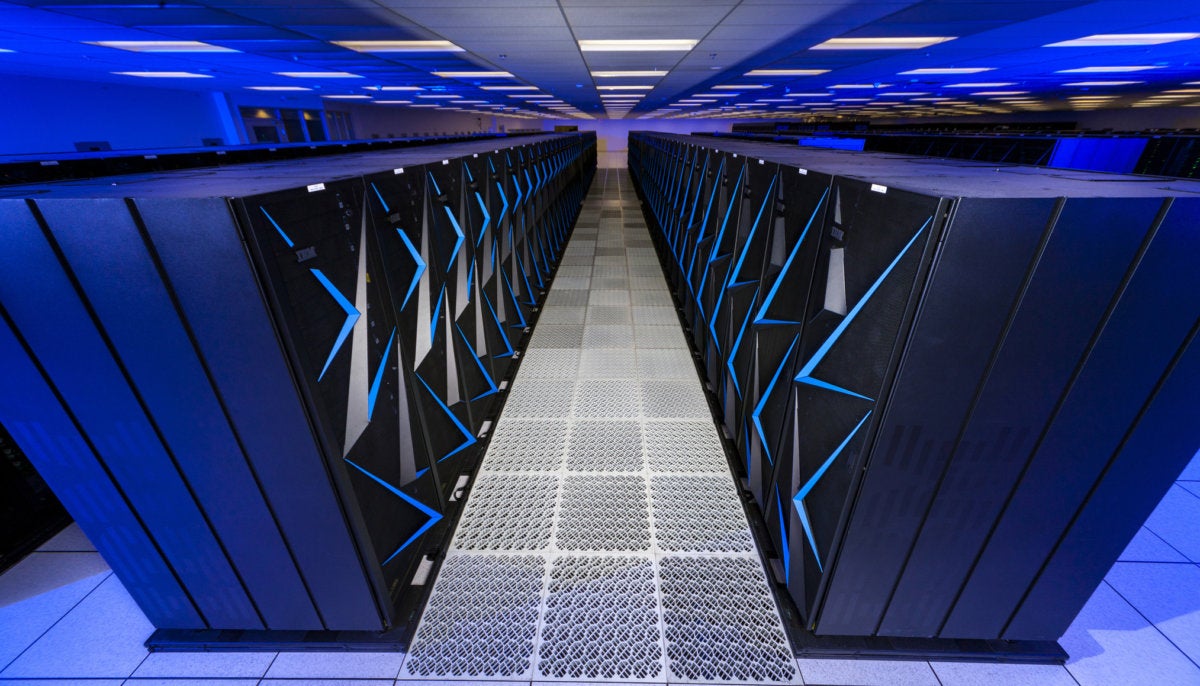4.9 KiB
Cracks appear in Intel’s grip on supercomputing
New competitors threaten to take Intel’s dominance in the high-performance computing (HPC) world, and we’re not even talking about AMD (yet).

It’s June, so it’s that time again for the twice-yearly Top 500 supercomputer list, where bragging rights are established or, in most cases, reaffirmed. The list constantly shifts as new trends appear, and one of them might be a break in Intel’s dominance.
Supercomputers in the top 10 list include a lot of IBM Power-based systems, and almost all run Nvidia GPUs. But there’s more going on than that.
For starters, an ARM supercomputer has shown up, at #156. Astra at Sandia National Laboratories is an HPE system running Cavium (now Marvell) ThunderX2 processors. It debuted on the list at #204 last November, but thanks to upgrades, it has moved up the list. It won’t be the last ARM server to show up, either.
[ Also see:10 of the world's fastest supercomputers | Get daily insights: Sign up for Network World newsletters ]
Second is the appearance of four Nvidia DGX servers, with the DGX SuperPOD ranking the highest at #22. DGX systems are basically compact GPU boxes with a Xeon just to boot the thing. The GPUs do all the heavy lifting.
AMD hasn’t shown up yet with the Epyc processors, but it will, given Cray is building them for the government.
This signals a breaking up of the hold Intel has had on the high-performance computing (HPC) market for a long time, said Ashish Nadkarni, group vice president in IDC's worldwide infrastructure practice. “The Intel hold has already been broken up by all the accelerators in the supercomputing space. The more accelerators they use, the less need they have for Xeons. They can go with other processors that do justice to those accelerators,” he told me.
With so much work in HPC and artificial intelligence (AI) being done by GPUs, the x86 processor becomes just a boot processor in a way. I wasn’t kidding about the DGX box. It’s got one Xeon and eight Tesla GPUs. And the Xeon is an E5, a midrange part.
[Get certified as an Apple Technical Coordinator with this seven-part online course from PluralSight. ]
“They don’t need high-end Xeons in servers any more, although there’s a lot of supercomputers that just use CPUs. The fact is there are so many options now,” said Nadkarni. One example of an all-CPU system is Frontera, a Dell-based system at the Texas Advanced Computing Center in Austin.
The top two computers, Sierra and Summit, both run IBM Power9 RISC processors, as well as Nvidia GPUs. All told, Nvidia is in 125 of the 500 supercomputers, including five of the top 10, the fastest computer in the world, the fastest in Europe (Piz Daint) and the fastest in Japan (ABCI).
Lenovo was the top hardware provider, beating out Dell, HPE, and IBM combined. That’s because of its large presence in its native China. Nadkari said Lenovo, which acquired the IBM x86 server business in 2014, has benefitted from the IBM installed base, which has continued wanting the same tech from Lenovo under new ownership.
Join the Network World communities on Facebook and LinkedIn to comment on topics that are top of mind.
via: https://www.networkworld.com/article/3403443/cracks-appear-in-intels-grip-on-supercomputing.html
作者:Andy Patrizio 选题:lujun9972 译者:译者ID 校对:校对者ID